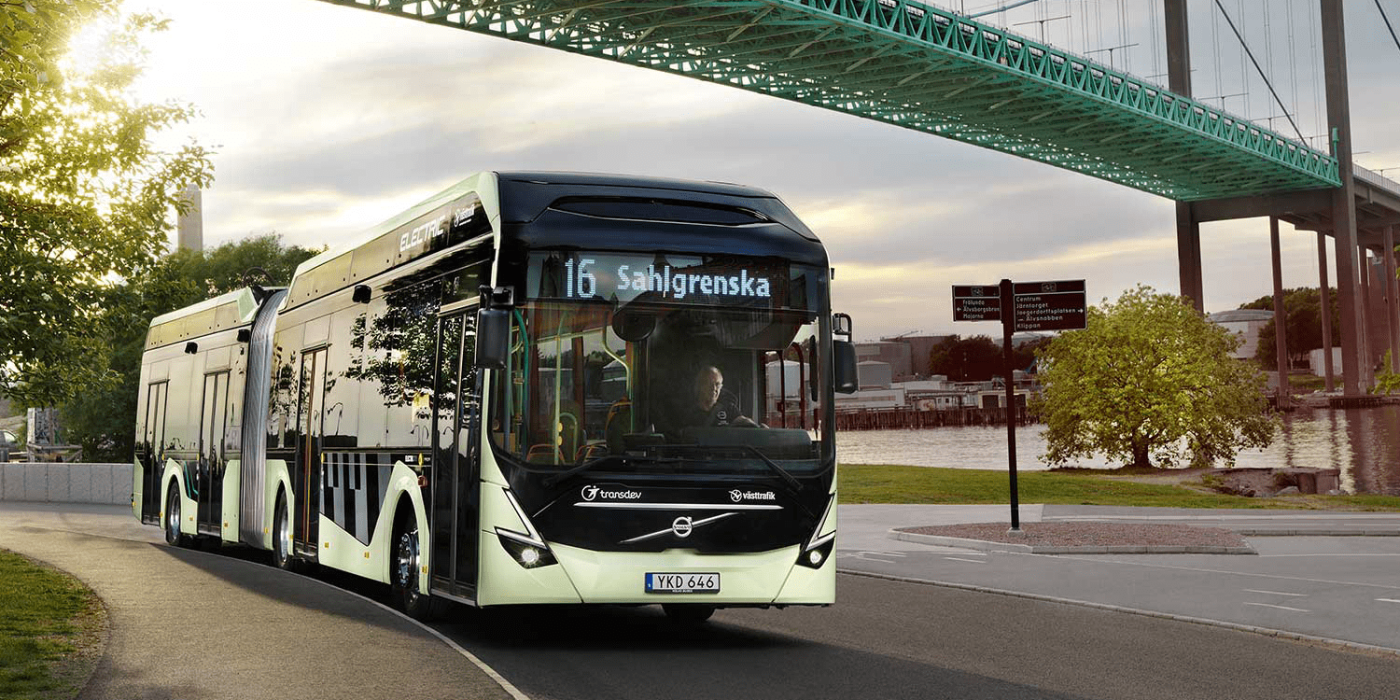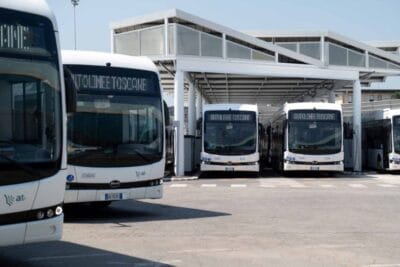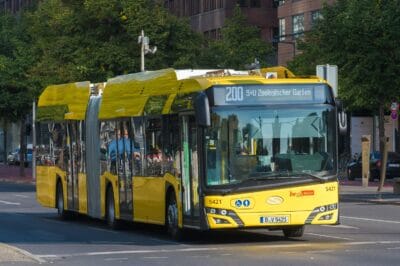SE: Volvo to deliver 157 electric buses for Transdev
In Sweden, Volvo Buses will deliver 157 electric articulated buses to Transdev starting in 2020. All of the coaches will be Volvo’s 7900 Electric Articulated model and will operate on several lines in the city of Gothenburg.
++ Kindly find an update to this article below. ++
Volvo’s new articulated bus was recently launched to market. The 7900 EA is powered by two 200 kW electric motors, each with a two-speed gearbox. This should enable the bus to start on steep gradients of up to 20 degrees even when fully loaded.
The 7900 EA has a capacity of 150 passengers and features a flexible design, meaning operators can choose the length of the buses of 18 or 18.7 meters. Volvo also enables operators to vary the number of batteries up to 396 kWh. Transdev did not specify the dimensions or battery capacity of their new articulated buses.
Volvo’s new articulated bus can be charged either via fast-charging stations along the route (using pantographs) or via cable (CCS) in the depot. In Gothenburg, Transdev will be charging the buses at quick-charge stations along the route, using the industry-standard charging interface OppCharge.
The Swedish company’s articulated buses are doing well in a short time. Earlier this year the Dutch city of Leiden put five Volvo electric buses into operation, which were part of an order from last year for 23 electric buses by the public transport operator Arriva. The Birmingham Airport has also ordered six of the Volvo 7900 Electric buses.
The Volvo Electric Articulated bus boasts energy consumption that is 80 per cent lower than that of a corresponding diesel bus. With their introduction, emissions and noise will be significantly reduced, and the electric buses will be able to operate in sensitive areas or zones with particular restrictions.
Håkan Agnevall, President of Volvo Buses, explains that electric transport ” creates new exciting opportunities for urban planning since we now get emission-free and quiet public transport that can operate closer to the city’s residents. Volvo aims to be a leader in increased electrification and to be a partner for cities that wish to implement long-term sustainable public transport solutions for their inhabitants.” For Volvo Buses, this is its most significant single order for electric buses in Europe so far.
Transdev currently operates almost 60 electric buses in Sweden, particularly in Umeå, Eskilstuna, Stockholm and Gothenburg. Gunnar Schön, CEO of Transdev Sweden says Transdev was “extremely thorough in choosing a partner with a holistic approach, a partner that will be able to deliver both buses and charging infrastructure on time and with excellent uptime.” He added that “new buses, in particular, quiet electric buses, not only result in cleaner cities – they also improve the everyday working environment.”
Transdev works with several different bus suppliers, and it seems that they often work with a local bus supplier. Gothenburg is the closest town to Volvo’s largest factory in the country. Dutch manufacturer Ebusco has received a 130 million Euro order from Transdev Netherlands to supply 156 electric buses on its home market.
The French Transdev group increasingly wants to make do without fossil fuels. When the Gothenburg contract was announced in July this year, Thierry Mallet, CEO of the Transdev Group said: “For Transdev, the energy transition is a commitment to quickly convert our vehicle fleet to a growing proportion of low-emission and zero-emission vehicles.” In addition to battery-electric buses, the company will also actively explore hydrogen and fuel cell buses. This summer, France’s first commercially operated hydrogen bus line will be launched in Lens.
Electric buses are experiencing rapid uptake currently worldwide. Transdev’s fleet will also become increasingly electric: Transdev plans to operate more than 1,500 electric buses worldwide by 2024. The Group is active in 27 countries, including Germany.
Update 17 January 2020: ABB has secured the contract for supplying charging infrastructure for the 157 electric buses. In the second half of 2020, 19 new high-performance charging systems will be installed before the new buses are put into operation. Two further stations are planned in future. The buses in Gothenburg, Mölndal and Partille will use ABB Panto Down chargers with a charging capacity of 450 kW. ABB will provide a complete solution that includes both the charging stations and all the network connection hardware via ABB’s cable distribution cabinets.





0 Comments